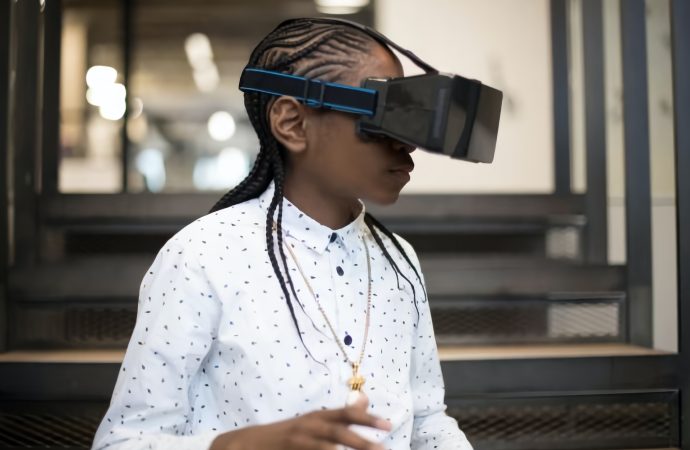In a bold move that solidifies its commitment to virtual reality (VR) technology, Meta, the tech giant formerly known as Facebook, is spearheading efforts to harness the potential of the metaverse for job training and education. With its vast resources and ambitious vision, Meta aims to revolutionize the way we learn and acquire skills by
In a bold move that solidifies its commitment to virtual reality (VR) technology, Meta, the tech giant formerly known as Facebook, is spearheading efforts to harness the potential of the metaverse for job training and education. With its vast resources and ambitious vision, Meta aims to revolutionize the way we learn and acquire skills by immersing individuals in realistic virtual environments. This article explores Meta’s foray into the metaverse, the potential implications for job training and education, and the challenges that lie ahead.
The metaverse, a concept popularized in science fiction, refers to a virtual universe where people can interact with each other and the environment in real-time. It promises to break the barriers of physical distance and offer limitless possibilities for communication, collaboration, and exploration. Meta envisions a future where the metaverse becomes an integral part of our daily lives, transcending traditional boundaries and redefining the way we work, learn, and connect.
One of the key areas Meta is focusing on is job training. Traditional training methods often fall short in providing immersive and practical experiences, limiting the effectiveness of learning. By leveraging VR technology, Meta aims to create virtual simulations that replicate real-world scenarios, enabling individuals to gain hands-on experience and develop critical skills in a safe and controlled environment. This approach has the potential to revolutionize various industries, from healthcare and engineering to hospitality and manufacturing.
For example, imagine a medical student being able to practice complex surgical procedures in a virtual operating room or an aspiring architect designing intricate structures within a virtual cityscape. The possibilities are endless. Meta’s metaverse has the power to bridge the gap between theory and practice, offering learners a realistic and engaging learning experience that can accelerate their professional growth.
Moreover, Meta’s metaverse holds great promise for education. Traditional classrooms often struggle to capture students’ attention and cater to diverse learning styles. By integrating VR technology into education, Meta aims to create immersive learning environments that captivate students’ imagination and foster active participation. Students can explore historical events, travel to distant lands, or engage in interactive simulations, enhancing their understanding and retention of complex concepts.
Meta’s metaverse also has the potential to address educational inequalities. Virtual classrooms can transcend geographical barriers, bringing high-quality education to remote and underserved areas. Students who lack access to quality educational resources can benefit from Meta’s technology, leveling the playing field and opening up new opportunities for learning and growth.
However, the path to realizing the full potential of Meta’s metaverse is not without challenges. Technological hurdles, such as achieving realistic graphics and seamless interactions, need to be overcome to create truly immersive experiences. Additionally, concerns surrounding privacy, security, and the ethical use of data within virtual environments must be carefully addressed to ensure user trust and protection.
Furthermore, the metaverse must be inclusive and accessible to all. Efforts should be made to bridge the digital divide and ensure that individuals from different socioeconomic backgrounds have equal access to the benefits of VR technology. Collaboration between Meta and educational institutions, as well as partnerships with industry leaders, will be crucial in driving innovation, sharing best practices, and addressing these challenges collectively.
As Meta embarks on this ambitious journey, it holds the potential to reshape the future of job training and education. The metaverse can unlock new dimensions of learning, collaboration, and creativity, empowering individuals to acquire skills and knowledge in unprecedented ways. By combining the power of VR technology with Meta’s resources and expertise, the possibilities for transforming industries and empowering learners are immense.

















Leave a Comment
Your email address will not be published. Required fields are marked with *